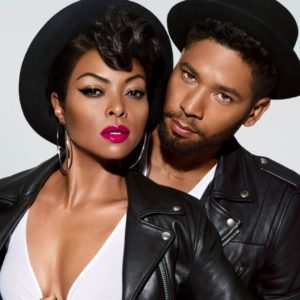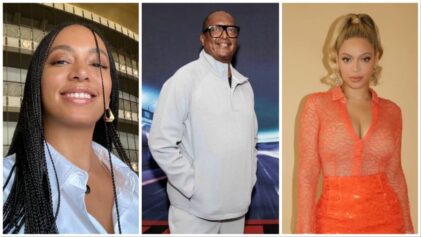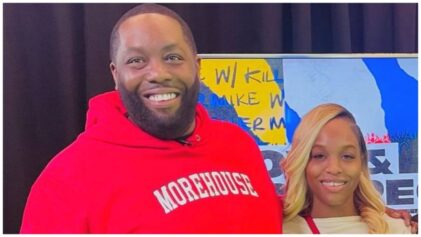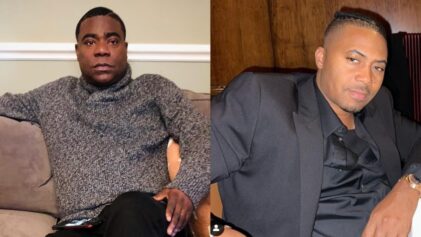
Photo Credit: Popsugar
The notion that the Black community must become economically self-sufficient has been at the center of Black liberation for decades. From the Montgomery bus boycotts to Blackout Friday, Black people have realized that there is power in their economic unity. When they stop financially supporting businesses that aren’t Black-owned and put their dollars back into their own communities, real change happens. If this is the case, why don’t more Black celebrities, especially those who support the Black Live Matter movement, become the face of said businesses in order to increase their economic reach?
Statistics show that Black-owned businesses have grown significantly since 2012. Women are at the forefront of this boom with ownership of 30 percent of businesses in the United States. Every time we lose a Black life to police brutality or racist killers, there is a call for Black people to take our $1 trillon buying power and put it strictly into Black-owned businesses. Solange Knowles took all of her money and put it into Black-owned banks and rapper Killer Mike called for Black people to do the same. It was understood that the best way to get the attention of a capitalist-driven country was to withhold our dollars. Many Black celebrities showed their support for this movement, yet we hardly see any of these people endorsing or becoming the face of Black-owned businesses. Yet, we constantly see our stars being the face of cosmetics and clothing lines that aren’t Black owned. Is it because they will only show support for the economic empowerment of Black people as long as it doesn’t mess with their cash flow?
Rahama Wright, founder of Shea Yeleen International, Inc., gave her thoughts on the impact of an endorsement from a well-known Black celebrity: “Black-owned businesses are on the rise, particularly with women becoming the fastest-growing segment. We definitely have the passion, ideas and work ethic required to run successful businesses. However, we oftentimes lack funding, mentors and market access. We also have to deal with the trust gap and unconscious bias. But, Black buying power is about $1 trillion a year and growing. In beauty alone, we spend about $7 billion a year! It’s clear that there is tremendous potential for Black businesses to be successful and opportunities to work with celebrities or high-profile individuals can help fast track business success. A celebrity can partner with a small business that aligns with their interests to provide the visibility and exposure to help scale a business.”
This would be ideal, but it seems as though unless a celebrity has a vested interest in the company, they will only lend their voice to say we should support Black-owned businesses, nothing more. Nas for example, is the face of the male grooming company Bevel, but it is a company he’s financially invested in. Jay-Z, Will Smith and Jada Pinkett-Smith heavily endorsed Carol’s Daughter in the early stages of the business, but they also invested in the company. Is it then safe to say that, despite the fact that our celebrities honor people such as Muhammad Ali, who risked it all to stand firm in what he believed, money takes precedent over their social/political stance?
CSR Executive and Marketing Professor Monique Carswell says the power of the endorsement depends on whether the celebrity has a real connection to the product: “It’s hard to definitely say that an organic endorsement would help any business, Black-owned or not, without a strategy behind it. It would be like a tree falling in the forest. If a public figure chooses to use their celebrity to show genuine patronage of a service or product they believe in, their fans will take notice but will only buy it if there’s a natural affinity or if the celebrity truly helps make the connection why they can’t live without it.”
In terms of celebrities increasing sales, Carswell states, “The key element to impacting sales is that there’s also a media budget with compelling creative targeted at the segment they’re aiming to reach. It’s likely we don’t see this as often because it takes a real business case to be made for all parties involved. Celebrities understand the power of their influence but have to be critical of how a company or movement aligns with their brand. This is understandable, and if money is the major deciding factor, then more Black celebrities should research Black-owned businesses to invest in. The numbers don’t lie. There are numerous amounts of reputable Black-owned businesses they could invest in and then endorse just like Nas and other celebrities have done.”
Rebuilding Black Wall Street and becoming a community that is economically self-sufficient can happen with unified financial support of our businesses. In addition to the backing from the people in our local communities, getting our products or services national and international visibility would help make these goals become a reality. It would be nice to have more Black celebrities support businesses owned by people who look like them and support a powerful movement with more than just a social media post. MAC, L’Oréal and CoverGirl are great, but we have our own businesses that could benefit from the star power of our celebrities.


